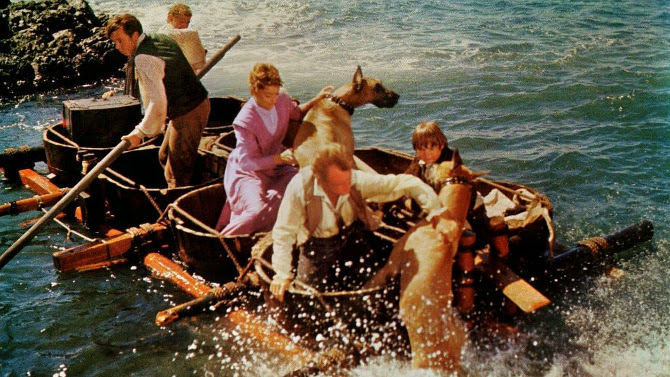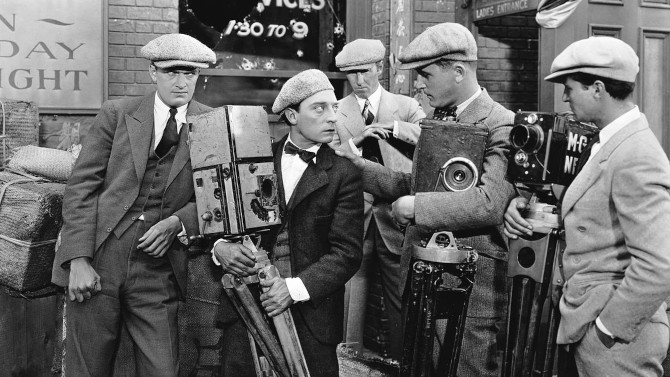
Plights, Camera, Action
Often deemed to be the last classic film made by the great Buster Keaton, The Cameraman (1928) was the final time the silent legend would have anything close to full creative control over one of his own features... as he folded his independent studio to sign with Metro-Goldwyn-Mayer (MGM) – who promptly made him their third highest paid star. Though his future would soon turn very bleak, this first film with the new studio was his own idea.
-
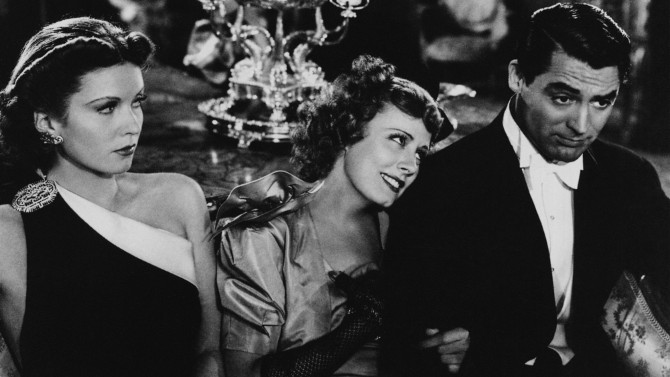
The Truth, the Whole Truth, and Nothing But the Truth
The Awful TruthAugust 26, 2018In one of the most frank speeches in Oscar history, Leo McCarey, upon winning the Academy Award for Best Director, took the statuette, and boldly stated, “I want to thank the Academy for this wonderful award. . . but you gave it to me for the wrong picture”. For those who have seen Make Way For Tomorrow, you will immediately know why he said it (a picture with a message and one of the great endings in film history, Orson Welles once claimed, “it would even make a stone cry”), but, that is not to say that the movie that he won for, 1937's The Awful Truth, is not deserving of some praise. A motion picture that helped put the screwball comedy on the map (The Awful Truth was based on a 1922 play by Arthur Richman and filmed twice before this version), it earned six Oscar nods (claiming the trophy for McCarey) – a darling to critics and one of the top commercial successes of the decade, while its irreverent mix of slapstick (it immediately evident that McCarey directed silent comedies; for example, the works of Charlie Chase and Harold Lloyd, while also pairing Laurel and Hardy together, and into the sound era, The Marx Brothers), witty repartee, and folly filled characters make it an absolute charmer.
-
Fantasy Island
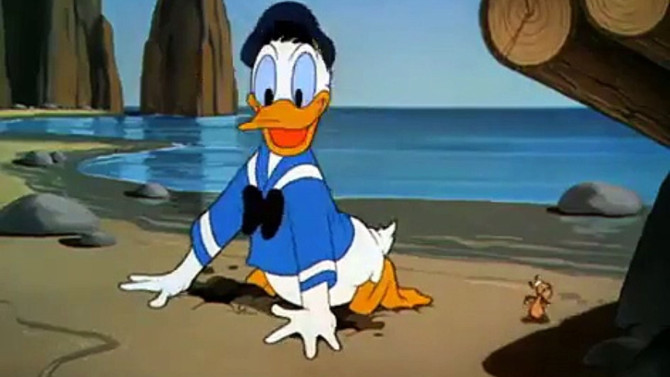 Sea SaltsSwiss Family RobinsonJuly 1, 2018
Sea SaltsSwiss Family RobinsonJuly 1, 2018Ah, the way things were. Revel in the past for a moment, won’t you. Imagine walking into a movie theatre in 1960, preferably one built in the golden age of film watching – mohair seats, architectural detailing (crown moulding, wooden panelling), a proper sized atrium. . . and, as you make your way to your place, enjoying some popcorn as the lights dim, you are not bombarded by numerous commercials that take you out of that magic place (and sadly reminding you of the business-centric reality of show business), but rather, are greeted by an animated short, 1949's Sea Salts, the perfect lead-in to your Disney feature, Swiss Family Robinson. These two films did show back to back upon Swiss Family Robinson’s initial run, so they will both be reviewed here. Sea Salts, directed by Jack Hannah, finds ‘Mac’ Bootle Beetle (Dink Trout) recalling his long, rather unusual friendship with sea captain Donald Duck (Clarence Nash) – the pair were forced to abandon ship long ago, finding themselves stranded on a tiny, uncharted isle.
-
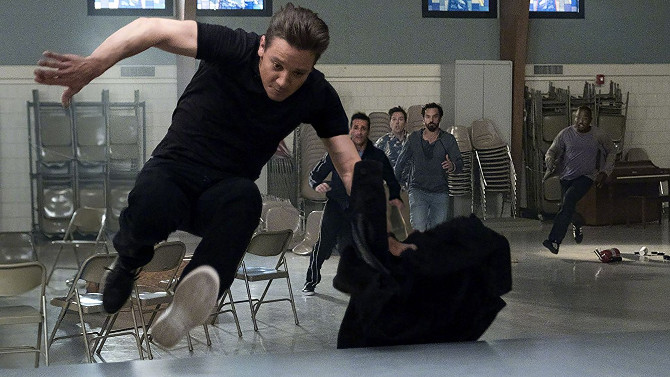
Not Just a Game
TagJune 23, 2018Finding its cinematic milieu somewhere between The Big Chill and The Hangover, 2018's Tag is at times infantile, crude, and must be described as all-around silly, yet, despite this, director Jeff Tomsic pieces it all together in a surprisingly entertaining way – hitting the right chord by way of its stylized action set pieces, clever dialogue and its unique plot (childhood comradery maintained over thirty long years by way of a simple kid’s game). Written for the screen by Mark Steilen and Rob McKittrick (and based upon a Wall Street Journal article entitled, “It Takes Planning, Caution to Avoid Being It” by Russell Adams – meaning that this is another based on true events tale), it tells the story of a group of friends who have been playing the same game of tag for thirty years (each May being the month where the all-out warfare happens). Now living in different cities, the group is comprised of an overly cocky businessman named Bob Callahan (Jon Hamm), a divorced, unemployed druggie, Randy ‘Chilli’ Cillano (Jake Johnson), a mentally fragile, outside the box thinker, Kevin Sable (Hannibal Buress), and the heart behind keeping the guys united, Hogan ‘Hoagie’ Malloy (Ed Helms). . . then there is their long hunted target, the hot-shot of the gang, Jerry Pierce (Jeremy Renner) – a man who has never been tagged in the three decades they have been playing (through a clever combination of speed, smarts, and feral brawn).
-
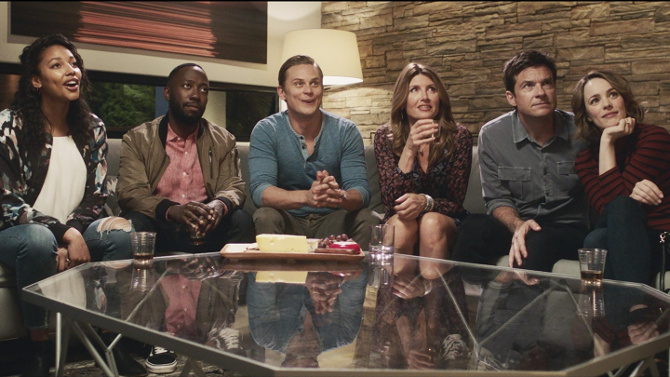
Playing Games
Game NightJune 15, 2018Well, if for some reason you’ve ever had the random thought that it would be cool seeing a group of board game loving friends wrapped up in a Taken-like kidnapping mystery – unbeknownst to them (for a good portion of it), then 2018's Game Night is for you. To have some fun, I have tried to work as many titles of games into this review as possible. Written by Mark Perez and directed by John Francis Daley (Bones’ Lance Sweets) and Jonathan Goldstein (the pair were part of the writing staff behind Spider-Man: Homecoming), the plot follows a group of weekly game nighters. . . ultra-competitive married couple Max (Jason Bateman) and Annie (Rachel McAdams), long time sweethearts Kevin (Lamorne Morris) and Michelle (Kylie Bunbury), and the oft ridiculed for having a new piece of dim-witted arm candy each week, Ryan (Billy Magnussen – delivering a great comedic performance in which he too is rather dense) – he has finally surprised the gang by bringing a sharp Irish lass named Sarah (Sharon Horgan); each week is a constant battle to discover who will be numero UNO.
-
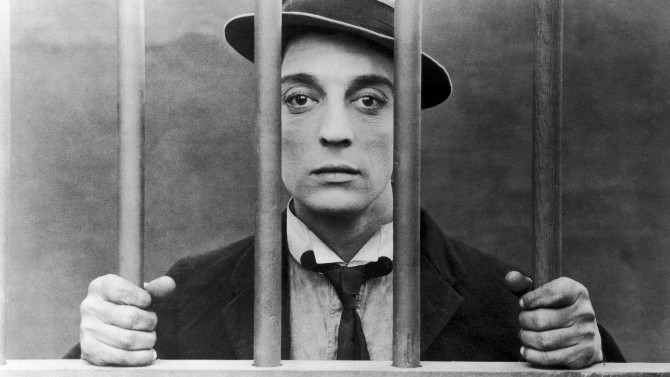
Escape Goat
The GoatMay 30, 2018Will Buster Keaton ever catch a break?. . . well, let’s be honest, by the end of the film, things usually work out alright. But, as The Great Stoneface hops, skips and jumps his way through a bevy of ever complicated (and might I add, intricately plotted) obstacles – no matter what movie, luck never seems to come his way. Case in point, 1921's two reel short, The Goat – which has nothing to do with an animal. Opening with a clever gag in which Keaton, (playing a famished, unlucky man monikered The Goat), is seen heading to the back of a bread line. . . misfortune reveals that the last three men in the procession are not actually men at all – they are mannequins showing off clothing for a store, hence, the never moving lineup.
-
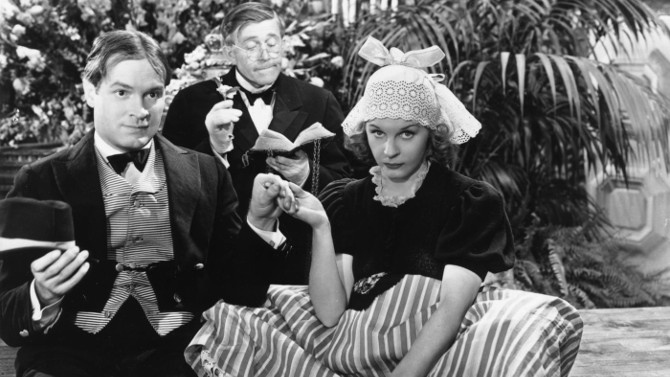
Muzzle Tov
Never Say DieMay 4, 2018A rich, hypochondriac of a man, John Kidley (Bob Hope), haunted by a Black Widow (a murderous, marry-a-wealthy-husband-a-year type woman, not a spider), Juno Marko (Gale Sondergaard), flees her side, making his way to a beautiful health-resort-centred town called Bad Gaswasser, Switzerland, hoping that the hidden locale, nestled amongst the picturesque Alps, will help him with his supposed condition, and, more importantly, in avoiding the persistent dame – hence the 1939 film’s title, Never Say Die. Now, of course, the quote offered at the opening is spoken by Kidley, and it references his perceived awful luck. And, to be honest, Ms. Marko is quite the woman. . . having ditched her most recent beau (she witnessed him slipping and falling off the Matterhorn from mere inches behind him – wink wink, nudge nudge), Kidley is her next mark, and it does not take her long to track the wealthy gent down once again. Here is a piece of witty dialogue from the film, emphasizing their rather amusing predicament:

